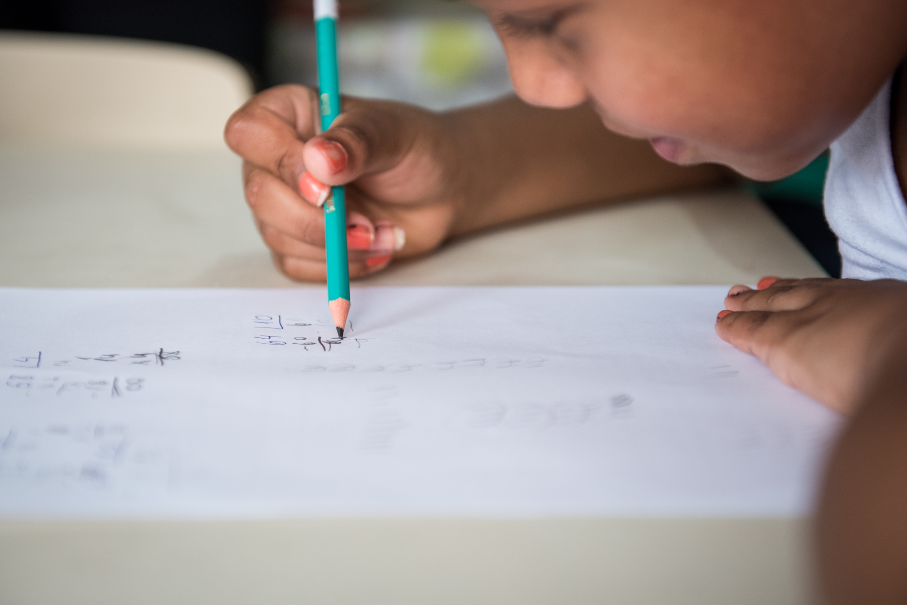The aim is to create an inclusion policy for children with disabilities in a city of Rio Grande do Sul
 According to the World Health Organization (WHO), one billion people live with disabilities. Although scientific, political and social debate has rapidly spread on the inclusion of these people, few efforts have been aimed at developing public policies in this field. To help change this scenario, PUCRS is developing a pioneering project in the state of Rio Grande do Sul (Brazil) to investigate the process of socio-educational inclusion of children with disabilities under three years of age in the city of Viamão.
According to the World Health Organization (WHO), one billion people live with disabilities. Although scientific, political and social debate has rapidly spread on the inclusion of these people, few efforts have been aimed at developing public policies in this field. To help change this scenario, PUCRS is developing a pioneering project in the state of Rio Grande do Sul (Brazil) to investigate the process of socio-educational inclusion of children with disabilities under three years of age in the city of Viamão.
The research is part of the Graduate Program in Education (PPGEdu) of the School of Humanities and its final goal is to carry out a pilot experience of implementing an early intervention policy, as is already the case in other countries. “We will collect and analyze data with Professor Ana Serrano, from Universidade do Minho, Portugal. She will help us implement this policy during the third year of research, including a field visit to assist in the process,” says project coordinator Marlene Rozek.
The study, having of Professor Gabriela Dal Forno Martins as Executive Coordinator, includes actions such as promoting training spaces for the professionals involved in order to enable the improvement and dissemination of the policy. “Our goal is to bring better living conditions for these children, favoring the process of socio-educational inclusion,” adds Marlene.
Aimed at contributing to the improvement of the inclusion policy in the scenario of Rio Grande do Sul, this is a pioneering work that will raise awareness on the importance of this type of initiative. “Among Europeans, such actions are seen as an investment. Those who receive care from the very beginning of their development become much more autonomous and capable adults. Those growing unassisted will suffer a great deal of damage and perhaps reach adulthood without basic literacy. The state ends up carrying a heavier burden as a result of not investing in early childhood rather than focusing on this age group and providing a more promising future to these children,” says the General Coordinator.
Social Inclusion in Early Childhood
The idea arose from the results found in two studies carried out by PUCRS’ Nucleus for Study and Research on Learning and Inclusive Processes (NEPAPI). Their conclusions pointed to the importance of early childhood in the social and school inclusion of people with disabilities. Presently there are no official guidelines in Rio Grande do Sul that specifically take into account this age group, leaving families and professionals without clear guidelines on the steps that must be taken to ensure better development and learning conditions. Based on this finding, a three-year project was started seeking to establish guidelines for the socio-educational inclusion of children from birth until three years of age.
According to Marlene, the two studies have shown that such children come to school at six or seven years of age with many losses which should have been investigated and addressed much earlier. “They are below their potential and at disadvantage compared to the others, which makes the inclusion process much more difficult. Therefore, we must focus on a stage before schooling. Rather than thinking of actions solely within the school environment, it is important to pursue inclusion in society as a whole. To that end, we need an interdisciplinary approach, including education, health and social assistance,” she explains.
One of the expected outcomes is the preparation of guidelines for the care of these children. In these cases, intervention does not take place directly with the babies, but in the environments where they regularly live, especially in the family and in formal and informal educational spaces. Thus, we seek to improve the child’s learning experiences in these contexts through an investment in the adults responsible for the care and education of the children. “This is not clinical care. We seek to strengthen family ties. It is the family that is going to take charge of this baby and keep communication. Our proposal is to create service networks, but with the family at the center,” says Marlene.
How the Process Will Work
The choice for Viamão came after careful evaluation. Besides counting on the collaboration of the Municipal Secretariats of Education, Health and Social Assistance, the team had access to the data systems of these secretariats, with a lot of information necessary to compose the research.
Every two weeks, the group goes to the location for meetings with representatives of the three secretariats and other local entities. In 2018, the first stage of the project is being developed, aimed at surveying the number of births of children with disabilities in 2015, 2016 and 2017, their health and life conditions. This diagnosis will also help determine who cares for these children daily and the types of care currently existing in the city, including Basic Health Units, hospitals, schools and other institutions.
The second stage will involve the implementation of actions with families and professionals, as well as the preparation of guidelines for the policy, always with the presence and participation of the interdisciplinary network formed in partnership with the other sectors of the municipality. In the third year of research, Universidade do Minho will help in the implementation of the policy.